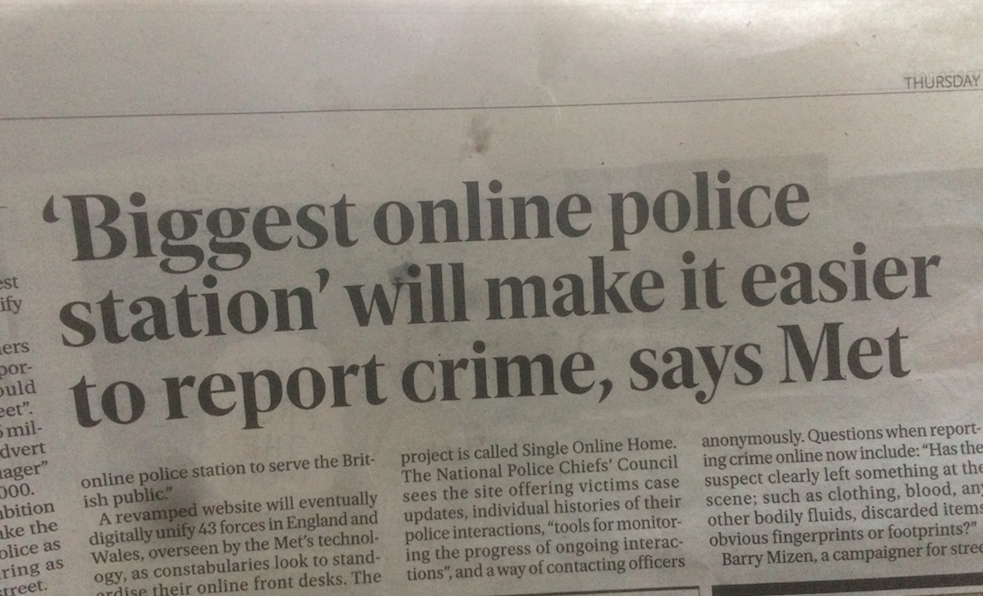
I know I’m not supposed to be reading newspapers, but when I find one left on a train I sometimes flick through.
Anyway, I’m getting increasing concerned by the removal of people. First it was the supermarket (and what a sterile, soulless, joyless place that now is), then it was my bank (no cashiers now, just terminals, with one overworked person with an iPad endlessly explaining to people over the age of 40 (you know, the ones with all the money) why they now have to deal with machines rather than human beings. Above is the latest example.
In theory this might be a good idea. Another channel to contact the police. But we all know what’s going to happen. Mission Creep. It will save the Met a load of money and will eventually be the only way you can contact the police. God forbid your phone gets lost or runs out of battery. And how exactly is an online police station going to provide empathy or reassurance?

As you say, the truly sinister aspect of this will arise over time. Public safety personnel a structured for a just-in-time service delivery model. When that service delivery can be moved to a server rather than a servant there will be serious pressure to adjust the numbers of expensive humans downward.
But more than this, it will remove context. That depth and shading that the human police officer brings with years of experience in reading people and hopefully extensive knowledge of their assignment area. So when the raving alcoholic that’s having another hallucination that their home has been burglarized calls the police, instead of an officer that knows to talk them down and depart the area they will be met with an digital interface that will dutifully record every rant and statement as fact. Consider the ways in which this can be perverted and crime statistics soon become meaningless.
The body of work will never diminish, so this will shift it to more expensive outcomes. Consider the above example. Rather than a line officer spending 20 minutes resolving it at the scene, a detective will have to undertake the investigative response. They will spend those 20 minutes reviewing the report, god knows how long traveling to the incident location, and another substantial block of time interviewing the reporting party and assessing the scene.
Public safety has always been beaten for its inability to quantify bad things that don’t happen as a result of their work. This is just another iteration of that.